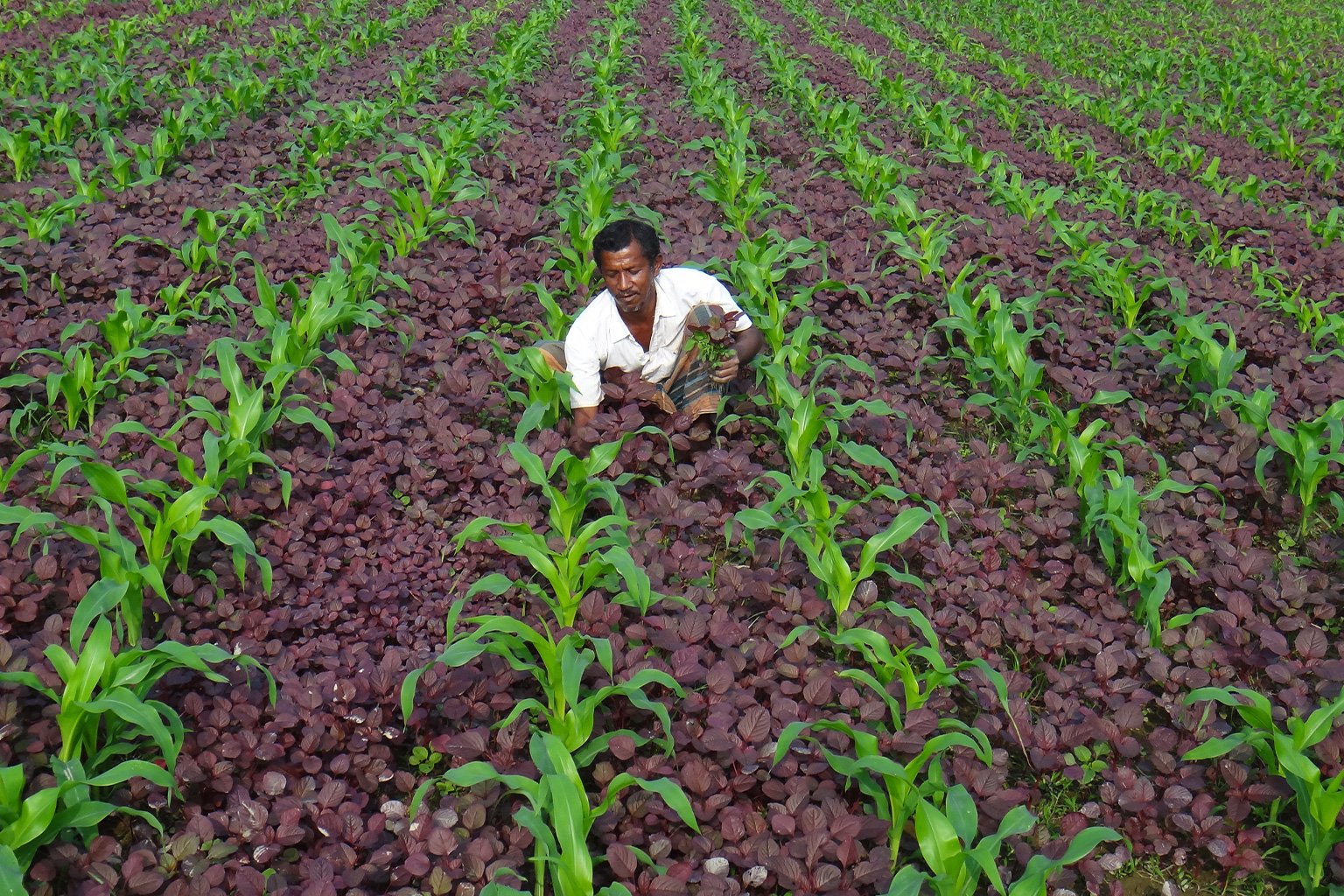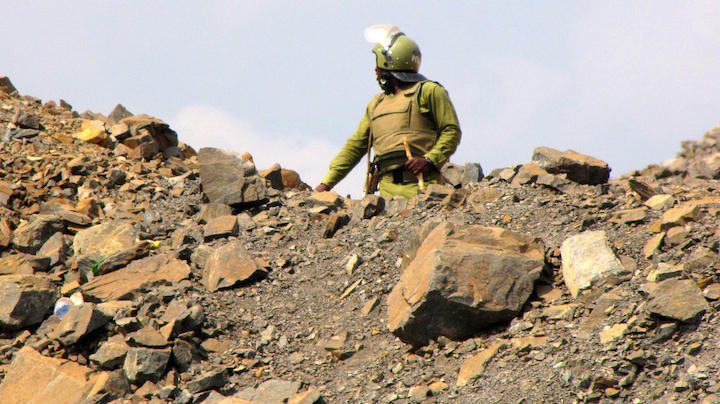- Excessive use of chemical fertilizers is causing soil health degradation in Bangladesh, putting the country’s food security at risk.
- The degradation of soil health has been attributed to higher crop removal due to increasing crop intensity, use of modern crops (high-yielding varieties and hybrids), soil erosion, soil salinity, soil acidity, deforestation, nutrient leaching and minimum manure application, according to numerous studies.
- Chemical fertilizers are mostly imported, and as a result of global price volatility, food prices have shot up in Bangladesh.
- Some farmers are now switching to organic fertilizers to improve the soil health of their agricultural land.
In an effort to feed 170 million people in a rapidly growing economy, Bangladeshi farmers rely on the widespread use of chemical fertilizers to boost production, leaving the country’s soil heavily degraded as a result. The country requires around 38 million tons of food grain.
Some farmers are now switching to organic fertilizers to improve the soil health of their agricultural land.
The move has also been prompted by the ongoing Russia-Ukraine war, which has made chemical fertilizers costly in the international market and subsequently in the local market.
Farmers are now struggling to produce enough food grain in a cost-efficient manner. The U.S. Department of Agriculture reported that Bangladesh harvested 35.65 million tons of rice this year, a little short of its original projection.
The Russia-Ukraine war, along with export bans in grain-exporting countries including India, have all increased food prices in the country. The U.N. Food and Agriculture Organization (FAO), in the 2022 Global Report on Food Crises, ranks Bangladesh among more than 50 countries with the highest rates of acute food insecurity, 2020-22.
Soil health degradation
From 1980-81 and 2015-16, the use of most every kind of nutrient, including nitrogen, potassium and phosphorus, has increased manifolds, according to relevant . For instance, Bangladesh used 365,881 tons of urea (nitrogen) in 1980-81, which reached 1,183,024 tons in 2015-16.
As a result, beneficial microorganisms in the soil are rapidly declining. Plants are not receiving necessary nutrients from the soil, and even after excessive use of fertilizer, some plants are not growing.
The degradation of soil health has been attributed to larger crop removal due to increasing crop intensity, growth of modern crops (high-yielding varieties and hybrids), soil erosion, soil salinity, soil acidity, deforestation, nutrient leaching and minimum manure application, numerous studies have shown.
According to the Soil Resource Development Institute (SRDI), good soil contains a minimum of 2.5% organic matter. In Bangladesh, most of the soil contains less than 1.5 % organic matter.
SRDI has stated that the nutrient deficiency of the country’s arable soil is acute. It is estimated that the overall nitrogen balance of Bangladesh soils is negative, phosphorus balance is near to zero, and potassium balance is highly negative. The same situation exists for sulfur, zinc, boron and other organic matter, as well as pH status.
Bangladesh will requires 3.4 million tons of urea fertilizer in 2022-23, according to data. The demand for diammonium phosphate (DAP), triple superphosphate (TSP), and muriate of potash (MOP) is 2.4 million tons, 1 million and 1.4 million tons, respectively.
Bangladesh produces around 1 million tons of urea locally, while the rest comes from United Arab Emirates, Saudi Arabia and Qatar. For TSP, the country depends on Morocco and Tunisia. Local producers meet around 100,000 tons of the demand.
According to the Bangladesh Fertilizer Association, for DAP, the country depends on China and Jordan, while in the case of MOP, the entire demand is fulfilled by imports from Belarus, Russia and Canada.

Organic alternatives
Bangladesh uses only around 30,000 tons of organic fertilizers produced locally by different organizations, reveals Bangladesh Fertilizer Association data.
Though small, demand has grown rapidly, by 30% annually. Local entrepreneurs are mainly using cow and chicken excreta to produce fertilizers, said F.H. Ansarey, managing director and CEO of ACI Agrobusinesses.
Vermicompost is a popular alternative among farmers in Bangladesh. It is mainly produced from a mixture of earthworms, vegetable waste, banana stem peel, coir pith, leaves, sugar cane trash, grass or husk and any moistened organic material.
Abdul Hamid, a farmer of northwestern Bangladesh, told Mongabay that vermicompost helps to increase soil fertility and improve the resistance of the plants to pests. It adds organic matter to the soil and keeps soil fertile for a long period.
The Fertilizer Recommendation Guide – 2018 from the Bangladesh Agricultural Research Council suggested maintaining soil productivity by using organic matter, including animal manure, cattle dung and urine, feed/fodder refuse, harvested crop residues, poultry excreta, oil cakes, bagasse, molasses, bone meal, rice husk, brans, weeds, dead animals, water hyacinth, green manure and so on.
Organic manure attaches to the soil structure and increases soil biodiversity by 30% in comparison with chemical fertilizer, said Hamidur Rahman, former director general of the Department of Agricultural Extension.
In order to ensure sustainable agriculture, the use of chemical fertilizers and organic fertilizers should be balanced to maintain good soil health as well as increased agricultural production, he added.
Banner image: Chumki Mondol, a farmer from Rajbari District, Bangaldesh, used seeder fertilizer drills to plant wheat on her fields. Image by Ranak Martin/CGIAR System Organization via Flickr (CC BY-NC-SA 2.0).
Citations:
Global Network against Food Crises. (2022). 2022 Global Report on Food Crises. Retrieved from https://www.wfp.org/publications/global-report-food-crises-2022
Ul Haque, A.T., Khan, N. A., and Barman, S. K. (2018). Vermi-compost in agricultural production in Bangladesh. International Journal of Natural and Social Sciences, 2018, 5(2): 61-68. Retrieved from https://www.researchgate.net/publication/324950109_Vermi-compost_in_agricultural_production_in_Bangladesh.
Bangladesh Agricultural Research Council. (2018). Fertilizer Recommendation Guide-2018. Retrieved from https://bit.ly/3GnbDwy.
Related reading:
Climate change puts Bangladeshi farmers’ reliance on rice varieties to the test
Feedback: Use this form to send a message to the author of this post. If you want to post a public comment, you can do that at the bottom of the page.












